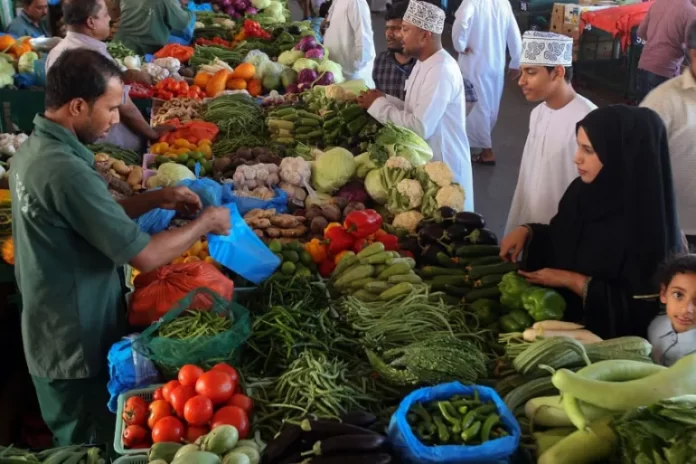Ah, the blessed month of Ramadan! A time of spiritual reflection, increased devotion, and fasting from dawn till dusk for Muslims worldwide. But amidst the tranquility and introspection, how do they manage their regular daily responsibilities? From work commitments to family duties, the rhythm of life continues, albeit with an added layer of challenge. So, let’s delve into the fascinating world of how Muslims navigate through their everyday tasks while observing fasting during Ramadan!
The Morning Hustle: Starting the Day Right

As the first light of dawn peeks through the horizon, Muslims rise with a mission – to seize the day, even while fasting! But how do they kickstart their mornings with the same vigor and energy?
Pre-Dawn Preparations
- Suhur Selections: Choosing nutritious and filling pre-dawn meals to sustain energy throughout the day.
- Hydration Hacks: Ensuring adequate hydration with water-rich foods and beverages before the fast begins.
Navigating Work and School: Finding Focus Amidst Fasting
For many Muslims, Ramadan coincides with professional commitments and academic pursuits. How do they maintain productivity and concentration during fasting hours?
Time Management Tactics
- Prioritization Power: Identifying crucial tasks and allocating peak energy periods for maximum efficiency.
- Short Break Strategies: Incorporating brief breaks for prayer and rejuvenation to maintain mental sharpness.
Communication Coordination
- Transparent Dialogue: Openly communicating with colleagues or teachers about fasting obligations to foster understanding and support.
- Flexibility Framework: Seeking flexible work or study arrangements where feasible to accommodate religious practices without compromising performance.
Family and Social Dynamics: Strengthening Bonds in Ramadan

Ramadan is not just about individual devotion; it’s a time for familial and communal connection. But how do Muslims balance these relationships with fasting demands?
Shared Responsibilities
- Teamwork Triumphs: Distributing household chores and meal preparation tasks among family members to lighten individual burdens.
- Social Synergy: Engaging in communal iftars (breaking the fast meals) to foster solidarity and shared experiences within the community.
Patience and Understanding
- Grace Under Pressure: Practicing patience and understanding towards loved ones amidst the potential challenges and heightened emotions of fasting.
- Empathy Embrace: Extending empathy and support to family members who may find fasting more physically or emotionally demanding.
Health and Wellness: Nurturing the Body and Soul

Fasting during Ramadan isn’t just a test of spiritual discipline; it’s also an opportunity to prioritize holistic well-being. How do Muslims ensure they stay healthy and nourished?
Balanced Nutrition Basics
- Wholesome Choices: Opting for nutrient-dense foods during iftar and suhur to maintain energy levels and support overall health.
- Moderation Mantra: Practicing moderation in consumption to avoid overeating or indulgence after a day of fasting.
Mindful Movement
- Active Adaptations: Adjusting exercise routines to suit fasting schedules and prioritizing low-intensity activities during fasting hours.
- Spiritual Sweat: Incorporating spiritual practices like Quranic recitation or meditation alongside physical exercise for a holistic well-being approach.
Frequently Asked Questions (FAQs)
Q: How do Muslims manage fasting while working long hours?
A: Muslims often prioritize rest and hydration during non-fasting hours to maintain energy levels throughout the day. Additionally, strategic meal planning and breaks for prayer help sustain productivity during extended work hours.
Q: Is it permissible to skip fasting for work or school obligations?
A: In Islam, certain exemptions exist for individuals who are ill, pregnant, nursing, traveling, or experiencing menstruation. However, many Muslims strive to fulfill fasting obligations while balancing work or school commitments through effective time management and communication.
Q: How do Muslims handle social gatherings or events during Ramadan?
A: Muslims may attend social gatherings or events during Ramadan but often exercise discretion in managing their participation to ensure adherence to fasting obligations. They may choose to break their fast in private or opt for healthier food options when dining out.
Conclusion: Mastering the Art of Balance
In the intricate tapestry of life, fasting during Ramadan presents both a spiritual challenge and a profound opportunity for growth. Through meticulous planning, open communication, and unwavering dedication, Muslims around the globe adeptly manage their daily responsibilities while observing the sacred fast. So, the next time you wonder, “How do Muslims manage daily life responsibilities during fasting?” remember, it’s all about finding harmony amidst the hustle and bustle, one day at a time!


